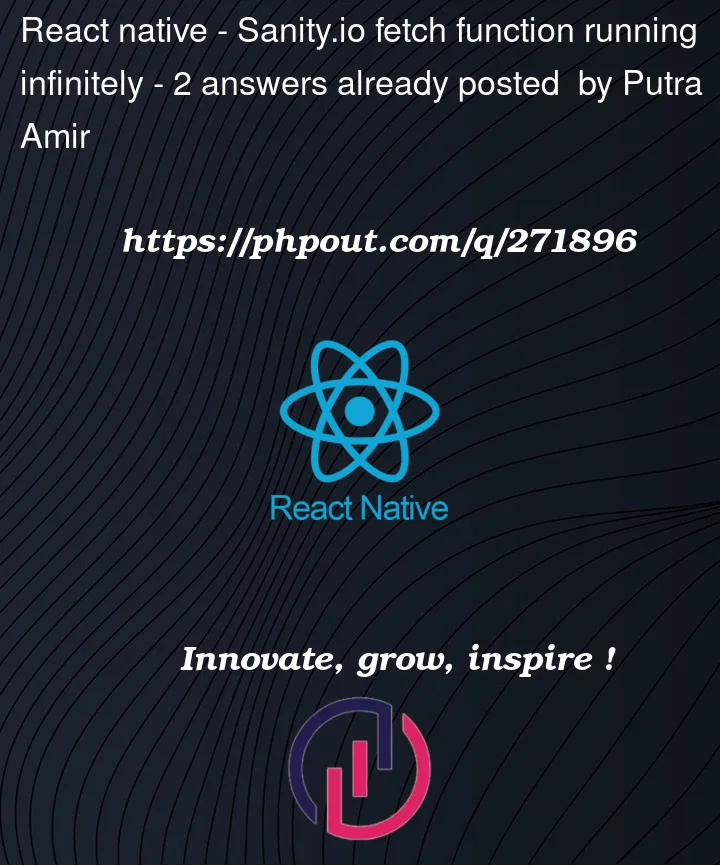import { View } from "react-native";
import React, { useState, useEffect } from "react";
import Memory from "../component/Memory";
import sanityclient from "../memories-20/sanityclient";
const Memories = () => {
const [memories, setMemories] = useState([]);
const [isLoading, setIsLoading] = useState(true);
const [startIndex, setStartIndex] = useState(0);
const batchOfMemories = memories.slice(startIndex, startIndex + 3);
const fetchData = () => {
sanityclient
.fetch(
`*[_type == "memory"] | order(date desc) {
...,
}`
)
.then((data) => {
setMemories(data);
console.log(memories);
setIsLoading(false);
});
};
useEffect(() => {
fetchData();
}),
[];
return (
<View className="flex-1 items-center bg-transparent justify-center">
<View>
<View className="flex items-center w-full h-[90%]">
{!isLoading ? (
<View>
{batchOfMemories.map(
(memory, index) =>
<Memory />
)}
</View>
) : (
<Loading />
)}
</View>
</View>
</View>
);
};
export default Memories;
I’m using React Native – Expo with Sanity.io
The problem is that the fetchData function runs infinitely which is making the API Request count massive.
How do I make it so that it only runs on page load?
or if possible, runs only if there is change?




2
Answers
I solved it simply just by adding a if check before running the fetch
const fetchData = () => { if (!memories.length) { sanityclient .fetch( `*[_type == "memory"] | order(date desc) { ..., }` ) .then((data) => { setMemories(data); setIsLoading(false); }); console.log("fetch"); } else { setIsLoading(false); } };Not the best solution, the function still runs infinitely but atleast the API doesn't get called because the variable already has data in it
the
fetchDatafunction runs infinitely because you write wronguseEffect:Correct code: